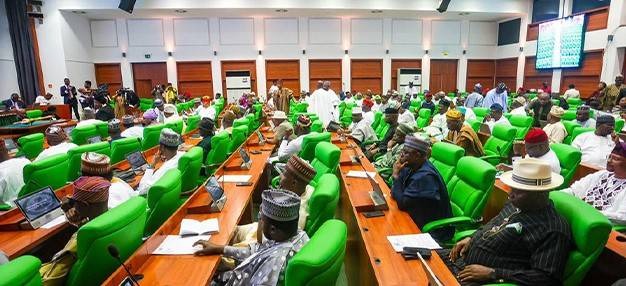A group of lawmakers in the House of Representatives are seeking amendments to the 1999 Constitution to transition from the current presidential system to the parliamentary system of government.
According to the group made up of about 60 lawmakers, the transition has become necessary to reduce the cost of government in the face of dwindling revenue.
Titled, ‘The Bills Proposing Constitutional Alterations For a Transition To Parliamentary System of Government,’ the bill was sponsored by the House Minority Leader, Kingsley Chinda, and 59 others.
The bill was read on the floor of the House during plenary session in Abuja on Wednesday.
In a statement, a Spokesman for the Parliamentary Bill Sponsors, Abdussamad Dasuki said, “Today, we stand on the cusp of history, as lawmakers across party affiliations and regional backgrounds come together to present bills proposing Constitutional Alterations that seek a transition to Parliamentary System of Government.
“These bills, seeking to alter the Constitution of the Federal Republic of Nigeria 1999, advocate a transition from the current presidential system to a parliamentary system at all levels – federal, state, and local government.
“The proposed alterations, when passed, would significantly impact the national political landscape.
“Our founders in their wisdom and in a political atmosphere devoid of compulsion, and having considered the interests of their native peoples and their desire to live together in a country where truth and justice reign, where no man is oppressed, and where all citizens live in peace and plenty, adopted the parliamentary System of Government.
“That was the governance system of the First Republic, a period when legislative and executive powers were exercised by the representatives of the people in parliament and in the executive, and by the nature of the system these representatives were accountable to the people. For six years while it was in operation, the system worked for the country.”
He said over the years, the imperfections of the Presidential System of Government have become glaring to all, despite several alterations to the constitution to address the shortcomings of a system that has denied the nation the opportunity of attaining its full potentials.
“Among these imperfections are the high cost of governance, leaving fewer resources for crucial areas like infrastructure, education, and healthcare, and consequently hindering the nation’s development progress, and the excessive powers vested in the members of executive, who are appointees and not directly accountable to the people.
“The bills presented today seek a return to the system of government adopted by our founders, which made governance accountable, responsible and responsive, and ultimately less expensive,” he said.

